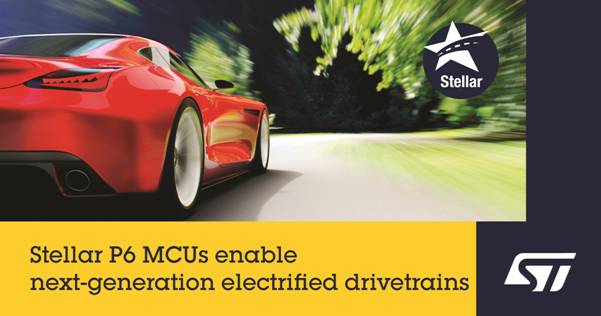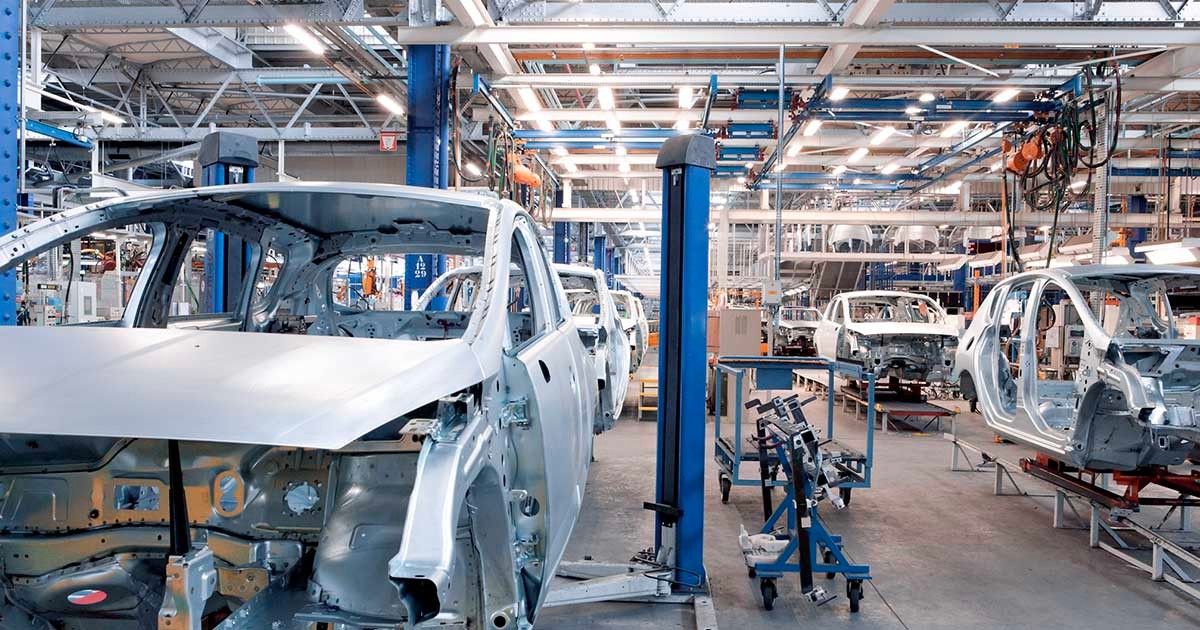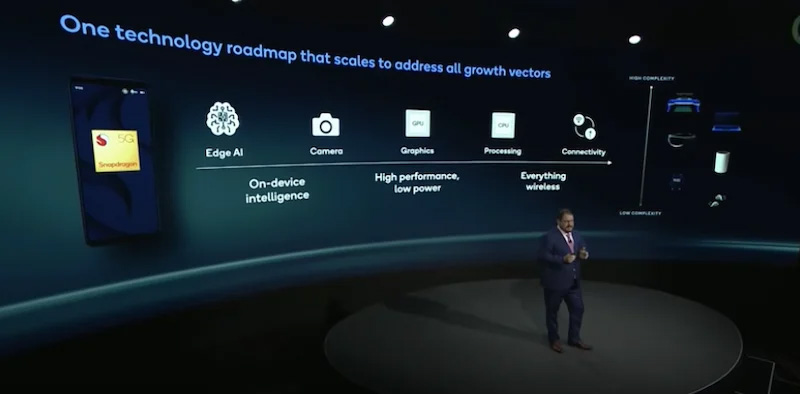STMicroelectronics Releases Stellar P6 Vehicle-Specific MCUs
• Ultra-high integration supports car manufacturers to design next-generation electric drive systems and OTA wireless update domain control systems
• First to support new high-speed in-vehicle communication protocols
• The first production-proven MCU in the Stellar family to support the automotive industry's transition to software-defined vehicles
STMicroelectronics (STMicroelectronics, ST; NYSE: STM), the world's leading semiconductor company serving multiple electronic applications, has launched a new automotive MCU chip, targeting the upcoming automotive electric drive trends and future trends. OTA (Over-The-Air) wireless update domain control system for a generation of electric vehicles. In response to the need to generate, process and transmit large data streams in today's cars, especially to better support the development of next-generation electric vehicles, STMicroelectronics has introduced the new Stellar P MCUs. This is the industry's first MCU that will allow automakers to integrate the new CAN-XL in-vehicle communication standard in 2024 models. This technology can help new automotive platforms better handle and cope with the ever-increasing stream of data, so that vehicle performance is always at its best.
ST Press Release September 8, 2022 - STMicroelectronics releases Stellar P6 automotive MCU, enabling system integration for electric vehicle platforms.jpeg
"The Stellar P6 automotive MCU is both real-time and energy-efficient, integrating an advanced motor control domain," said Luca Rodeschini, vice president, Automotive and Discrete Products Group, STMicroelectronics, General Manager, Strategic Business Development, Automotive Processors and RF Products. and energy management domains and execution functions to ensure a smooth transition from traditional fuel vehicles and electric vehicles to the new electric drive architecture model of software-defined vehicles. As the automotive industry begins to develop a new vehicle platform for the 2024 model, ST is ready to use The MCU supports platform development and simplifies the transition from development to production."
ST's Stellar family of automotive MCUs is designed to help automakers and Tier 1 suppliers transition to software-defined vehicles. Stellar products are now available in multiple families:
- The Stellar E-Series ensures fast real-time control and system miniaturization for power conversion applications, maximizing the benefits of SiC and GaN power technologies in applications such as EV on-board charging, DC-DC converters and electric drive inverters.
- Stellar G series MCUs are mainly used in the body domain of the automotive domain control architecture to securely manage data and integrate functions in real time and security. The series enables excellent software over-the-air updates and low-power modes, sending and receiving data via a wide range of in-vehicle communication protocols.
- The newly launched Stellar P series automotive MCU integrates advanced executive control capabilities and powerful functionality. Stellar P products target new electric vehicle electric drive technology trends and automotive domain control architectures, enabling excellent real-time performance and energy management.
Stellar P6 samples for the 2024 model year are available now. For inquiries and samples, please contact your local STMicroelectronics sales office.
Additional information
Automakers' next-generation vehicle platforms are transitioning to software-defined vehicles in order to address the complexity and performance of new capabilities in next-generation vehicles (electrification, advanced safety, assisted driving, autonomous driving). This transformation requires a top-down change to the automotive platform architecture. Significant changes include the shift from multiple electronic control units (ECUs) managing a small subsystem to domain or zone controllers that integrate multiple functions. These domain controllers must also address software integration of the disparate systems on the vehicle. A new generation of automotive MCUs like Stellar can achieve higher processing performance and integrate important functions while ensuring the safety and performance of the car. In a software-defined vehicle driven entirely by electronic systems, Stellar enables all systems to operate in complete synchronization, enabling secure over-the-air software upgrades, simplifying vehicle maintenance, and continuously improving performance.
Technical Information
Manufactured in ST's own fab, the Stellar P6 uses energy-efficient 28nm FD-SOI technology and embeds phase-change (non-volatile) memory (PCM) up to 20 MB in capacity. Developed and tested in accordance with strict automotive high-temperature working environment, radiation resistance and data preservation requirements, ST's PCM has a single-bit overwrite function that flash memory does not have, making memory access faster. In addition, the non-stop wireless update utilizes a game-changing innovative mechanism that saves memory space by dynamically allocating memory space for the newly downloaded software image before the new update software is effective. During the download process, the rest of the memory continues to execute the running application in real time.
STMicroelectronics' Stellar P6 MCUs feature up to six Arm® Cortex® R52 processor cores, some in dual-core lockstep operation and some in split-core execution, providing fail-safe redundancy for applications. These mechanisms enable new products to bring high performance, real-time determinism and upgraded capabilities to next-generation vehicle drive systems, electrification solutions and domain control systems. Stellar P6 uses Cortex-R52 features and firewalls to solve hardware virtualization issues (sandboxing), accessing resources on demand, which simplifies the development and integration of multi-source software on the same chip, while ensuring secure isolation of applications and performance.
Advanced safety measures are implemented at all levels of the architecture, ensuring that ISO 26262 ASIL-D functionality is efficiently implemented. In addition, FD-SOI technology is inherently quasi-radiation-hardened and provides superior protection against system unavailability issues, while ensuring that the chip meets the strictest safety standards.
The on-chip fast hardware information security module (HSM) adds a dual-core lockstep encryption engine, supports ASIL D functional safety level information security functions, and can implement enhanced EVITA full security functions. The new products also provide high-speed secure encryption services and secure network authentication to further protect manufacturers' firmware and end-user data.





